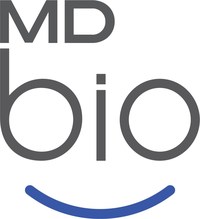In a surprising turn of events that has the potential to revolutionise the field of culture diagnostics for Tuberculosis (TB), a groundbreaking study has uncovered a unique behaviour in peptides that promises to expedite the diagnosis of this deadly disease. This research, recently published in the scientific journal Microorganisms, https://www.mdpi.com/2076-2607/11/9/2225 could prove to be a crucial piece of the puzzle in the ongoing battle against one of the world’s deadliest diseases.
For the first time, scientists have identified a hormetic response induced by antimicrobial peptides (AMPs) in slow-growing mycobacteria, including Mycobacterium tuberculosis, the bacterium responsible for TB. A hormetic response is a biological phenomenon wherein a low dose of a substance stimulates the organism, while a high dose inhibits it.
Antimicrobial peptides, which are short chains of amino acids, are typically known for their ability to kill bacteria. However, here’s the intriguing revelation: at lower concentrations, these peptides actually stimulate the growth of certain mycobacteria, making them more readily detectable. “This is a paradigm shift in how we perform culture diagnostics in TB. For decades, culture diagnostics has not seen changes in the media used,” remarked Tim Bull, the director of TiKa Diagnostics Ltd.
The implications of this discovery are profound. According to the World Health Organisation, TB continues to rank among the top 10 causes of death worldwide. Antibiotic resistance, including resistance in M. tuberculosis, is on the rise. “Despite much faster diagnostics available, culturing M. tuberculosis is the gold standard because it is still the only method allowing testing for all antibiotic sensitivities. Imagine reducing the time it takes to provide such information, getting patients the treatment they need faster, and curbing the spread of the disease. That’s the kind of impact we’re talking about,” emphasised Kai Hilpert, the director of TiKa Diagnostics Ltd.
Mycobacterium tuberculosis is a slow-growing bacterium, dividing only every 16-20 hours, in stark contrast to bacteria like E. coli, which can divide every 20 minutes. The AMPs identified in this study have the potential to significantly shorten the time required to confirm a TB diagnosis, particularly when bacterial levels are low. This promises a faster and more sensitive approach to TB testing.
Furthermore, this research underscores the versatility of peptide-based technology, with potential applications extending beyond human diagnostics to encompass animal health. This development ushers in a new era of infectious disease management, not only for TB but potentially for other mycobacterial infections as well.
The study involved a comprehensive screening of both designed and naturally occurring peptides. Notably, Lasioglossin LL-III from bees and Ranacyclin E from frogs emerged as the most potent natural peptides. The study also shed light on Peptide 14, which exhibited growth-stimulating activity across a broad concentration range, along with its stability-optimised variant, Peptide 14D, which exhibited a more focused activity range. These peptides are not mere scientific curiosities; they are already being commercially utilised by TiKa Diagnostics Ltd to enhance the recovery and culture diagnostics of mycobacteria in both humans and animals.






